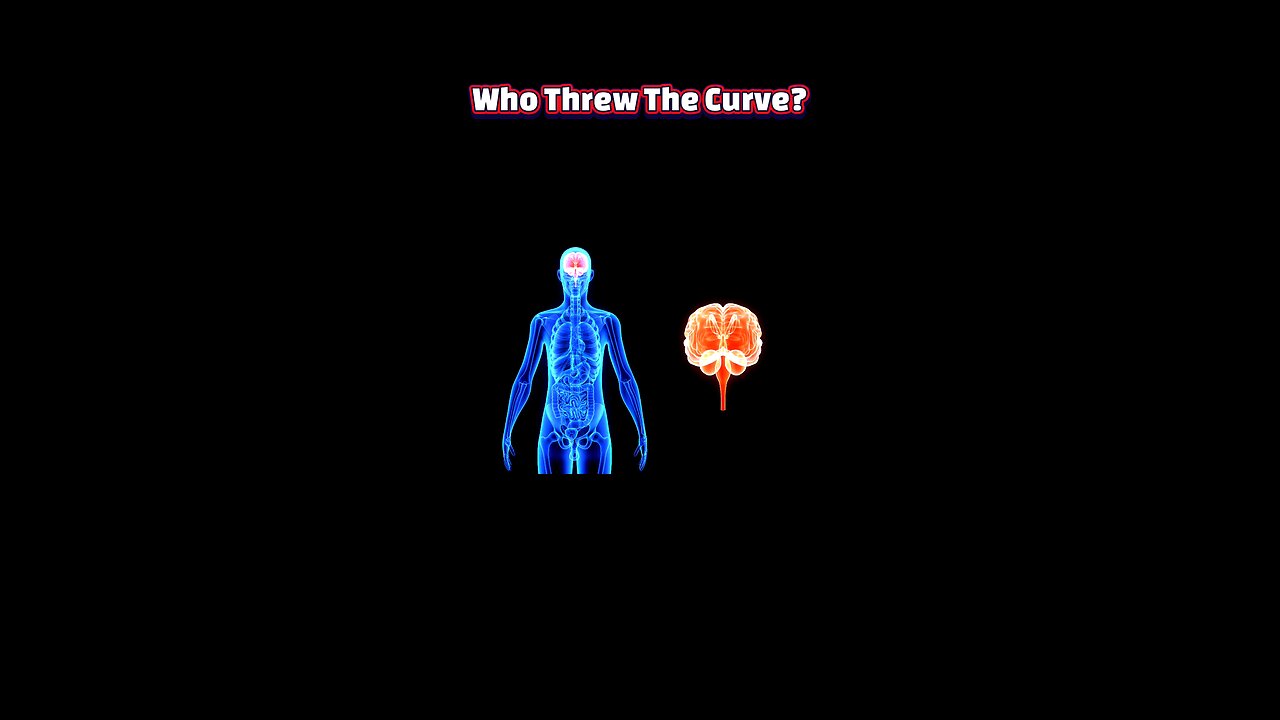Premium Only Content

Multitasking Is a Lie (Here’s What Your Brain’s Really Doing)
#BrainScience #NeuroscienceExplained #CognitiveBias #AttentionBlindness #ScienceFacts #HumanMind #MindBlown #MultitaskingMyth #BrainGlitches #newvideo #new #fyp
Ever lost your keys only to find them sitting in plain sight? Turns out, your brain isn’t slacking, it’s just operating on a rhythm that makes invisibility surprisingly common. A recent study from Hebrew University of Jerusalem reveals that human attention doesn’t work like a steady spotlight. Instead, it functions more like a strobe light, flashing on and off about eight times per second. This rhythmic “attentional sampling” means your brain is constantly taking snapshots of the world, not maintaining a continuous stream of awareness. When you try to focus on multiple things at once, the brain’s sampling rate drops dramatically. Monitoring two objects causes attention to alternate at just four flashes per second, and adding a third drops it to around 2.6. This ping-ponging of focus explains why multitasking often leads to missed details, your brain is literally blinking between tasks. Even more wild? This happens entirely outside your conscious awareness. You think you’re paying attention, but your brain is playing musical chairs with its processing power. The phenomenon isn’t just a quirky glitch, it’s a survival strategy. With limited neural resources and a sensory world that’s constantly overwhelming, the brain developed a rhythmic system to prioritize what matters most. Visual competition happens at every level, from basic eye input to complex object recognition. When multiple stimuli vie for attention, neural networks battle it out, and some information inevitably gets sidelined. That’s why your friend in the neon hoodie can vanish in a crowd, only to reappear when your brain cycles back to them. This research also sheds light on why sustained focus is so difficult. Whether you’re driving, studying, or scanning a spreadsheet, your brain’s natural rhythm means it’s constantly shifting gears. Understanding this can lead to smarter strategies for minimizing errors, like reducing distractions, chunking tasks, or designing environments that align with our cognitive tempo. It’s not about forcing your brain to work harder; it’s about working with its rhythm, not against it. In the end, the fact that your brain misses things right in front of you isn’t a flaw, it’s a feature. Attentional sampling is an elegant solution to a messy problem: how to process a flood of sensory data with limited bandwidth. So next time you overlook something obvious, don’t beat yourself up. Your brain’s just doing its rhythmic dance, and sometimes, that means the keys stay invisible until the next beat.
-
 59:49
59:49
The Quartering
4 hours agoMTG MELTDOWN On X, Hasan Piker Runs From Ben Shapiro & AI Nightmare!
112K44 -
 1:16:24
1:16:24
DeVory Darkins
5 hours agoDISTURBING: Eric Swalwell left DUMBFOUNDED after he gets confronted about trans athletes
95.6K54 -
 2:06:36
2:06:36
Side Scrollers Podcast
7 hours agoThis is the Dumbest Story We’ve Ever Covered… | Side Scrollers
51.2K10 -
 1:13:26
1:13:26
Steven Crowder
9 hours ago🔴 Jay Dyer on Hollywood, The Occult, and the Attack on the American Soul
276K207 -
 1:26:28
1:26:28
Sean Unpaved
7 hours agoNFL Thanksgiving Games Are Going To Be ELECTRIC! | UNPAVED
38.7K5 -
 29:07
29:07
The Rubin Report
9 hours agoAre Megyn Kelly & Erika Kirk Right About Our Political Divisions?
79.8K59 -
 27:09
27:09
VINCE
9 hours agoSaving America's Schools with Norton Rainey | Episode 177 - 11/26/25 VINCE
192K99 -
 2:03:57
2:03:57
Benny Johnson
8 hours agoFBI Director Kash Patel Makes January 6th Pipe Bomber Announcement: Massive Breakthrough, Stay Tuned
144K124 -
 1:06:17
1:06:17
Graham Allen
10 hours agoFAKE NEWS Is Everywhere!! Are We Living In The Upside Down?!
183K495 -
 2:59:36
2:59:36
Wendy Bell Radio
13 hours agoFeeding Their Greed
108K95